#022
Linking Practice
with Research
Giving Back Widely
to Society
Masahiro Kotosaka
Japanese Color: KAKITSUBATA-iro
#022
Masahiro Kotosaka
Japanese Color: KAKITSUBATA-iro
MOVIE

Associate Professor
Faculty of Policy Management
The role that management studies should fulfill is becoming increasingly significant amidst intensified competition as a result of the acceleration and globalization of technological innovation, due to advancements in technology.
However, even within the topic of “management,” a large gap exists between “the practice of strategy” and “strategic management as a field of research.”
Associate Professor Masahiro Kotosaka is putting his best efforts into bridging this gap between “practice” and “research” by harnessing his experience as an entrepreneur, management consultant, and researcher.
After completing my course of “training” as a practitioner lasting about 8 years, I began walking down the path of a researcher.
In my first 4 years as a practitioner, I managed 3 small companies alongside with pursuing my studies at university. After that, I joined McKinsey & Company as a consultant, where I provided support for resolving various management issues in more than 10 countries while based in Japan and Germany.
As a consultant, in my discussions with corporations and governments around the world, or with the managers of multinational corporations that have their beginnings in Europe or Southeast Asia, I was confronted by the question “Is there a universal and optimal solution to managing operations in diverse countries and/or regions?”
Should I continue working as a consultant while struggling with this question? Or should I face up to this unresolved question that emerged in the course of my work as a consultant? After much agonizing, I resigned from McKinsey & Company, and set my heart on becoming a researcher as I moved to Saïd Business School, University of Oxford. Since then, I have held the conviction that contributing to “management as practice” and contributing to “management studies as a field of research” are different things even while they are closely related to each other.
Today, I provide “valuable knowledge” to those who are working on the frontlines of practice. At the same time, I am tackling the difficult challenge of “pursuing universal values” in order to bring about the evolution of management as a science.
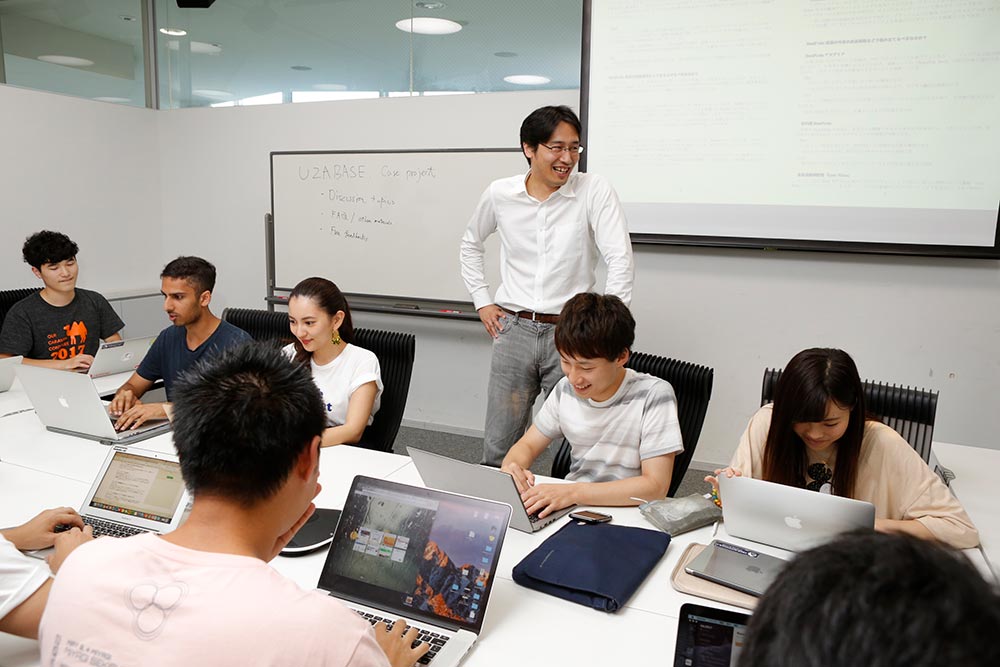
I am currently engaged in research based on 3 pillar themes, centered around the relationship between “markets” and “actors.”
The first theme is how actors, especially the firms, adapt to increasingly complex environments in a globalizing market. Previously, it had been sufficient for many Japanese corporations to adapt only to the environment of the Japanese market. However, corporations that have begun to seek out markets in many countries alongside with the rise of globalization are now under pressure to adapt to diverse environments.
The second theme is how actors are changing the given market environment. Most actors act to adapt to the environment that they are given. However, some actors not only adapt to the environment, but continue to grow by changing the environment itself. In what ways are such actors interact with the environment?
The third theme is what impact market environments that exist within actors have on the actors’ decision-making processes and actions. My research focuses on start-up companies, and looks at the questions of how emergent management strategies are born, how they are propagated throughout an organization, what factors drive business growth and internationalization, and further, how the relationships between corporations and individuals grow and change in what we term “ecosystems.”
Through such research, I engage in multifaceted discussions about the management style that is required by organizations of the future, and the image of the practitioners existing in such organizations.
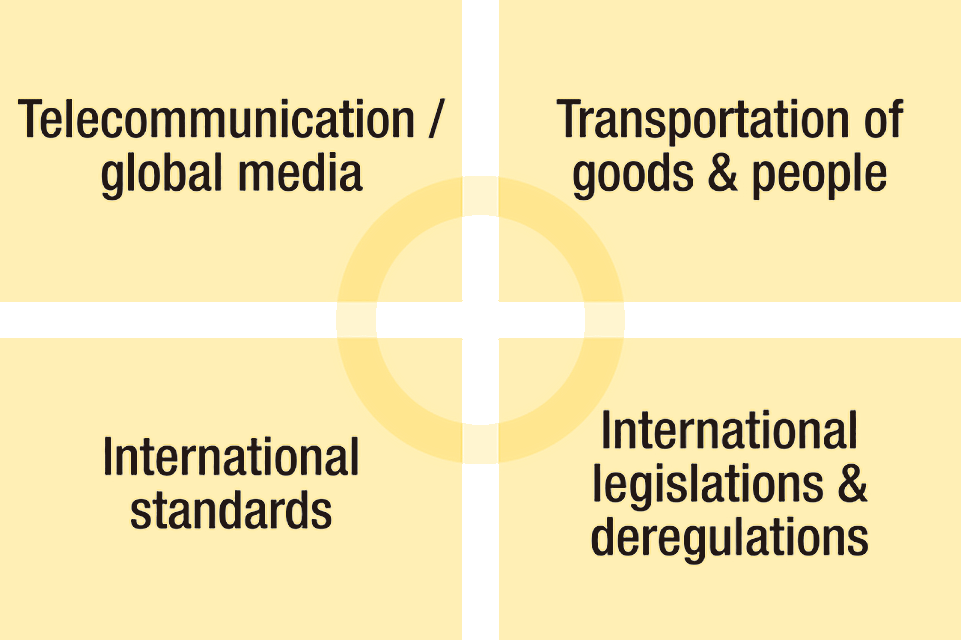
Technological advancement that enables us to capture information around the world instantaneously, realization of timely and prompt means of transportation at low prices, and development of international standards and pacts for technology, have great impact on the evolution of international business.
Recently, I began to conduct research on the impact that artificial intelligence (AI) has on management organizations.
The concept of management was born to study the administration of “organizations” that were created to improve production efficiency, during an era when much of the manual labor processes previously required became mechanized through the industrial revolution. Since then, technological advancements have constantly brought about changes to the management.
Thereafter, innovation in the transportation of things and information arose thanks to the emergence of railways and telegraphic communications. This enabled corporations to conduct multiple businesses in places that are geographically apart, and gave birth to large corporations that became known as “national companies.” The emergence of satellite communications and high-speed mass transportation by jets and container ships further gave rise to the successive establishment of global companies.
Till now, the process had involved the growth in size of organizations. On the contrary, technologies such as AI, IoT, and FinTech made it possible to “reduce the size” of organizations. Most white-collared employees became redundant, and organizations that previously required 2,000 employees can now operate with just 100 people. In the future, key management objectives will focus on how small an organization can become, and how large a value-chain it can build with that organizational scale. What are the types of management organizations and management strategies that this era calls for? This research has been selected as a research theme under the “Human-Information Technology Ecosystem (HITE)” research area, which is a “Call for proposal” R&D focus area delivered by the Research Institute of Science and Technology for Society (RISTEX), Japan Science and Technology Agency (JST). Together with researchers in the respective fields at the Shonan Fujisawa Campus (SFC), I am conducting research on this project based on the theme of “Trans-disciplinary Research Project on Co-designing Social Systems (Law, Economics and Management) and AI/Robot Technologies.”
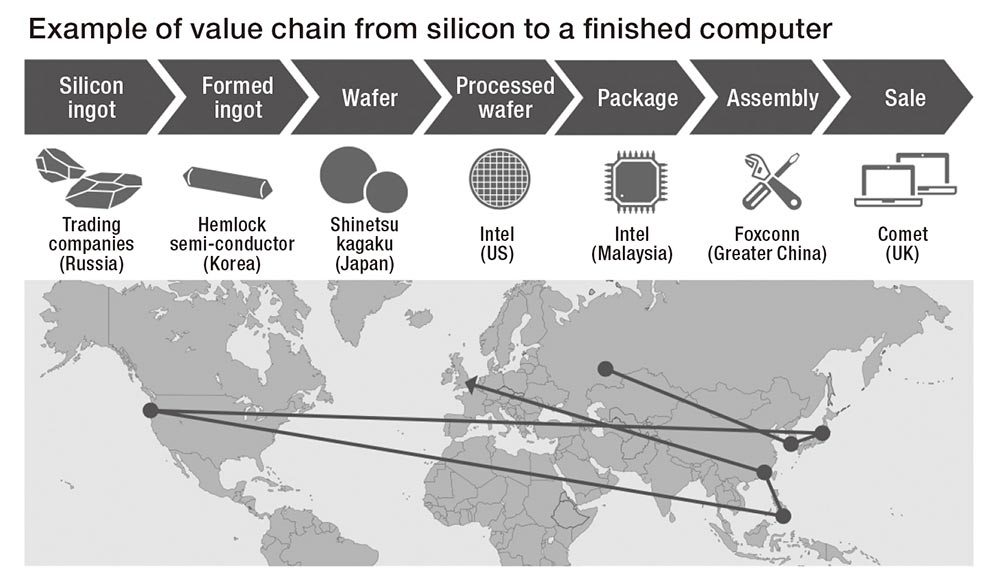
The global value chain is an important key phrase for next-generation international business strategy. Today, where it has become common for many companies from various countries to work together to produce and supply a single product, corporations that are highly influential in the value chain are able to generate high levels of profits.
I would like to take a renewed look at the “approach to research” in the field of management studies. Education as a “place for transmitting knowledge,” such as in traditional arts faculties, is now an outdated and obsolete concept. The same applies to management studies. If the aim is merely to acquire systematized knowledge, it would be more beneficial for students to listen to lectures conducted at Harvard University, Massachusetts Institute of Technology, or the University of Oxford through the Internet, instead of listening to my lectures in the classroom. What we truly need is to generate “interaction” and “creation” between the students and myself through the intense discussion. In short, it is important for the classroom to serve the function of “a place for generating knowledge,” rather than “a place for transmitting knowledge.”
My research laboratory is currently engaged in research work commissioned by corporations, and students are also involved in the research on their own initiative. Through such research work, students gain the valuable experience of delivering presentations to executive officers of leading Japanese corporations, and at the same time, experience success in providing value to society. For myself, I am able to harness the knowledge and information that I gain through the students’ research to conduct research at an even higher level of precision. This research style is sometimes seen in research laboratories in the field of natural science, but I hope to also establish such “organizational research styles” in the field of management studies.
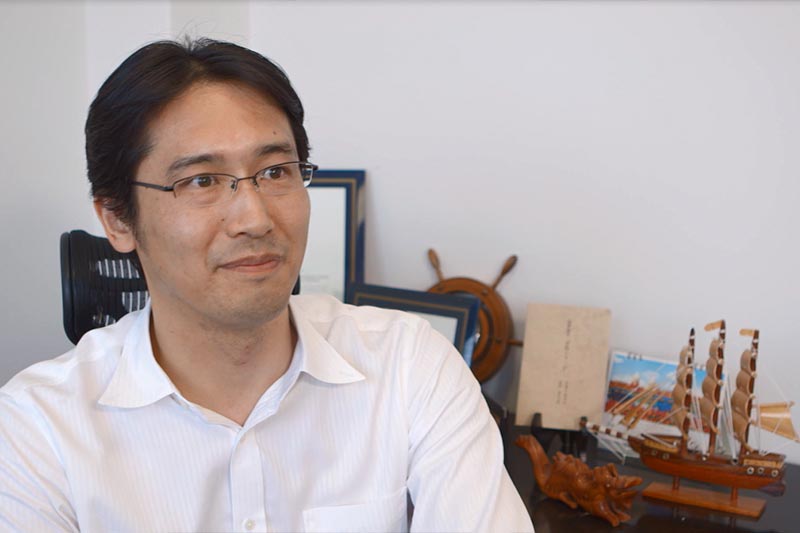
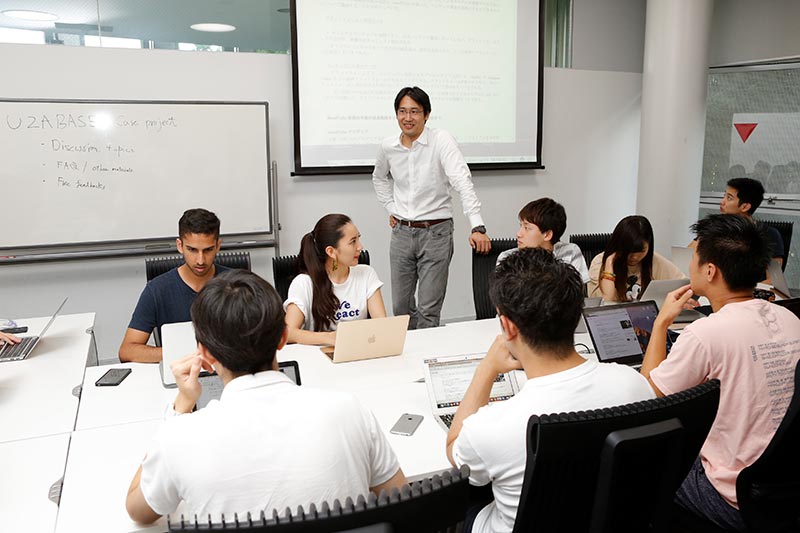
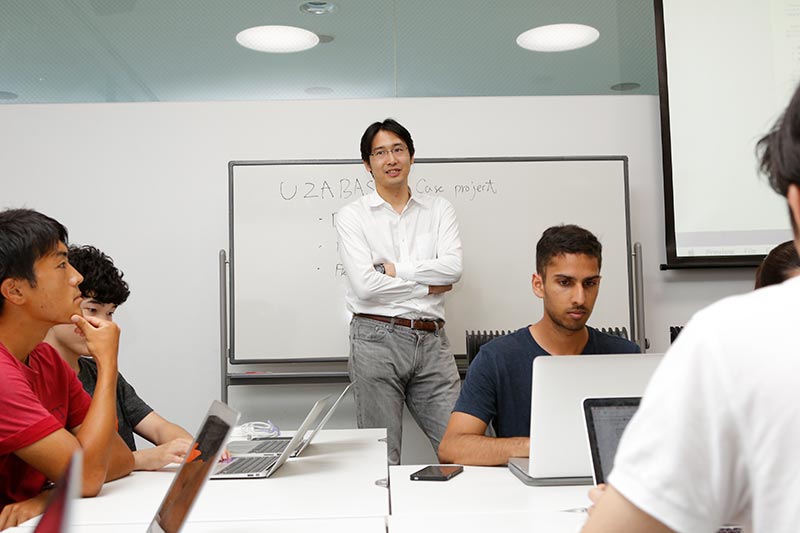
Management studies is an academic field positioned on the frontlines of the reality of humankind, and which seeks to capture and understand reality as facts. For that reason, if one does not have an ultimate interest in human society, the research would not contribute to the provision of fundamental values. In other words, however, I believe that if one can reach a certain height of achievement in this field, there are no other fields of academic study that offer deeper insight than management studies.
I am now engaged in the field of management studies from 3 standpoints: as a research, as a practitioner (consultant), and as an educator. I will now touch on my future goals from each of these standpoints.
My goal as a researcher is to continue disseminating research that I believe to be valuable to the world, and to have it highly rated by many people. However, even if it were not highly rated, I do not wish to compromise to the trends and norms of the world.
My goal as a practitioner is for all the practitioners that I have ties with to gain success beyond their expectations through the application of the advice they receive from me.
My goal as an educator is for my students to become researchers and practitioners who are more capable and successful than I am.
Going forward, I aim to build up knowledge in the areas of establishing start-up businesses, growth, and internationalization, and at the same time, engage in activities with the aim of giving back this wealth of knowledge widely to society.
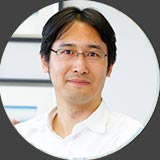
Masahiro Kotosaka
Associate Professor, Faculty of Policy Management, Keio University. While enrolled in Faculty of Environment and Information Studies at the same university, he founded 3 companies in the fields of retail and IT. After graduation, he worked as a consultant at the Tokyo and Frankfurt offices of McKinsey & Company. While working as a teaching research associate at the Saïd Business School, University of Oxford, he obtained his doctoral degree (D.Phil. in Management Studies). He taught at Ritsumeikan University before taking up his current position in 2016.

2017.Sep ISSUE